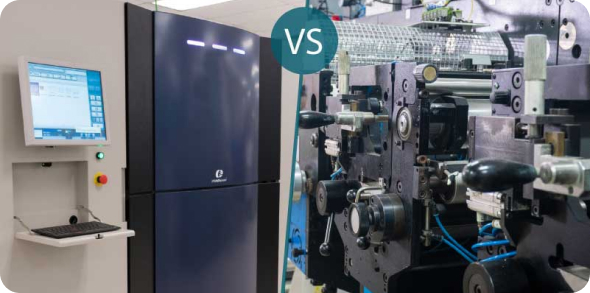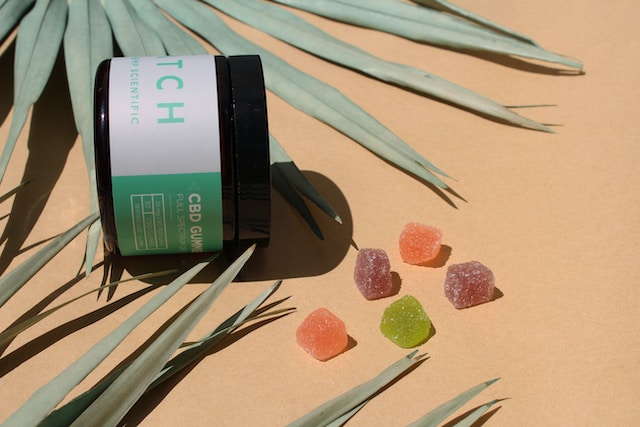In the ever-evolving landscape of marketing, staying ahead of the competition requires innovative strategies and a keen eye for emerging trends. One such trend that has been making waves in recent years is the use of synthetic labels for marketing. Synthetic labels, often associated with the tech and fashion industries, have now found their way into various sectors, opening up new avenues for creative marketing campaigns. In this comprehensive guide, we will explore the world of synthetic labels and how they can be harnessed in unique and effective ways to bolster your marketing efforts.
Introduction
Understanding Synthetic Labels
Synthetic labels, often referred to as synthetic paper or synthetic substrates, are a type of label material that has gained prominence due to its versatility and durability. Unlike traditional paper labels, synthetic labels are made from synthetic materials such as polypropylene, polyester, or vinyl. These materials offer a range of benefits, including resistance to moisture, tearing, and fading, making them ideal for various applications.
The Power of Creative Marketing
In today’s competitive market, standing out is paramount. Creative marketing strategies can be the key to capturing your audience’s attention and leaving a lasting impression. One avenue that has shown immense promise is the use of synthetic labels in marketing. These labels provide a canvas for creativity, allowing businesses to convey their brand message in innovative and captivating ways.
Why Synthetic Labels Matter in Marketing
Embracing Innovation
Innovation is at the heart of marketing success. Synthetic labels represent a departure from conventional marketing materials, signaling to consumers that your brand is forward-thinking and willing to embrace new technologies. This alone can pique curiosity and draw attention to your products.
Aesthetic Appeal and Branding
The aesthetics of your product packaging play a pivotal role in shaping consumer perceptions. Synthetic labels offer a sleek and modern appearance that can elevate your brand image. With endless customization options, you can ensure that your labels align perfectly with your brand identity.
Sustainability and Eco-Friendly Messaging
As environmental concerns become increasingly important to consumers, businesses are seeking ways to convey their commitment to sustainability. Synthetic labels can be manufactured using eco-friendly materials and processes, allowing you to communicate your green initiatives effectively.
Creative Applications of Synthetic Labels
3D Holographic Labels
3D holographic labels are a visual delight that can captivate consumers. These labels create a sense of depth and motion, making your products appear cutting-edge and intriguing.
Smart Labels with NFC Technology
Integrating Near Field Communication (NFC) technology into synthetic labels opens up a world of possibilities. Consumers can tap their smartphones on the label to access product information, promotions, or even interactive experiences.
Interactive QR Code Labels
QR codes have been around for a while, but when combined with synthetic labels, they can take on a new life. Create engaging QR code campaigns that lead consumers to videos, games, or exclusive content.
Temperature-Sensitive Labels
These labels change color or reveal hidden messages when exposed to temperature variations. They are ideal for products that require temperature monitoring, such as food and beverages.
Glow-in-the-Dark Labels
For products that target a youthful or adventurous audience, glow-in-the-dark labels add a fun and unique element. They can make your product stand out on store shelves and in the dark.
Case Studies: Successful Synthetic Label Campaigns
Tech Gadgets and Smart Labels
Leading tech companies have harnessed the power of smart labels to enhance user experiences. These labels provide quick access to user manuals, troubleshooting guides, and firmware updates.
Fashion Industry and Aesthetic Appeal
Fashion brands have leveraged synthetic labels to convey luxury and style. Labels with metallic finishes or intricate textures add a premium touch to clothing and accessories.
Food and Beverage Industry: Safety and Information
In the food industry, synthetic labels have been used to provide crucial information, such as ingredient lists, nutrition facts, and safety instructions. They can withstand the rigors of refrigeration and handling.
Enhancing Customer Engagement
Augmented Reality (AR) Labels
AR labels enable consumers to interact with your product in a virtual space. This immersive experience can build excitement and help customers make informed purchasing decisions.
Gamified Labels
Engage your audience with gamified labels that offer rewards or discounts. Encourage repeat purchases by making the unboxing experience entertaining and rewarding.
Personalized QR Code Labels
Create a sense of exclusivity by using personalized QR codes that lead to customized offers or content. Tailor your marketing efforts to individual preferences.
Eco-Friendly Messaging
Recyclable Synthetic Labels
Choose recyclable synthetic materials to demonstrate your commitment to environmental responsibility. Clearly label products as recyclable to encourage responsible disposal.
Reducing Carbon Footprint with Smart Labels
Smart labels can also convey sustainability messages. Highlight eco-friendly practices in your supply chain and production processes.
Sustainability Certification Labels
If your products meet specific sustainability standards, showcase certifications prominently on synthetic labels. This transparency can instill trust in environmentally conscious consumers.
FAQs (Frequently Asked Questions)
What are synthetic labels?
Synthetic labels are labels made from materials like polypropylene, polyester, or vinyl, known for their durability and resistance to moisture and tearing.
How do synthetic labels differ from traditional labels?
Traditional labels are typically made from paper, while synthetic labels are crafted from synthetic materials, offering greater durability and customization options.
Can synthetic labels be customized?
Yes, synthetic labels can be customized extensively, allowing businesses to tailor their appearance to match their branding and marketing goals.
Are synthetic labels eco-friendly?
Synthetic labels can be eco-friendly when made from recyclable materials and produced using sustainable practices.
How can I incorporate synthetic labels into my marketing strategy?
You can use synthetic labels creatively by exploring options like 3D holographic labels, smart labels with NFC technology, or interactive QR code labels to engage customers and convey your brand message effectively.
Conclusion
Incorporating synthetic labels into your marketing strategy can be a game-changer. These innovative labels offer a myriad of creative possibilities, from 3D holographic designs to interactive smart labels. They not only enhance your brand’s visual appeal but also provide opportunities for customer engagement and sustainability messaging.
To stand out in today’s competitive market, it’s essential to embrace innovation and leverage the power of synthetic labels. By doing so, you can create memorable marketing campaigns that resonate with your audience, drive online visibility, and ultimately contribute to the success of your brand. Embrace the future of marketing with synthetic labels and watch your brand soar to new heights.


